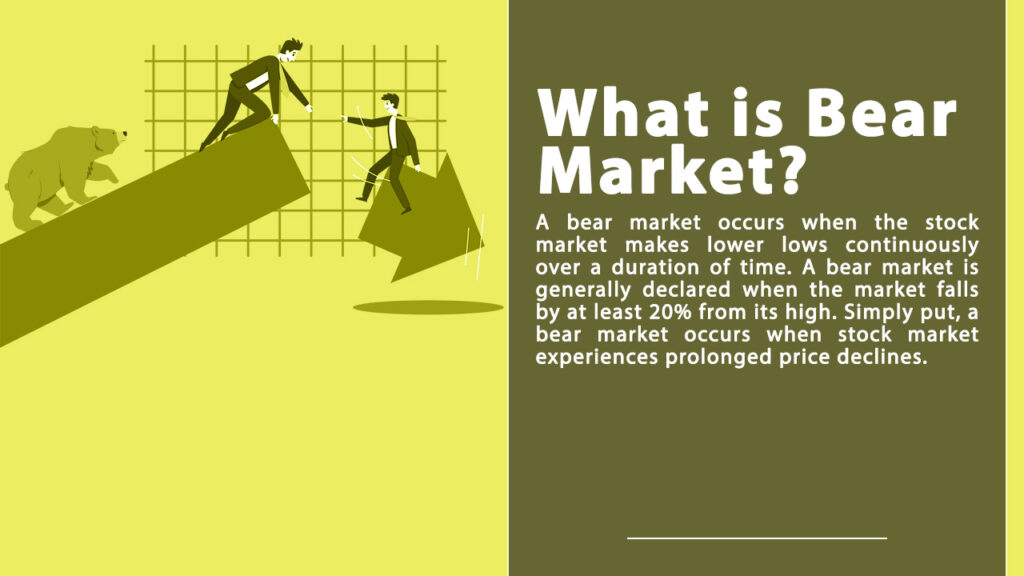A bear market occurs when the stock market makes lower lows continuously over a duration of time. A bear market is generally declared when the market falls by at least 20% from its high. Simply put, a bear market occurs when stock market experiences prolonged price declines. As a result of prolonged decline, consumer demand takes a hit due to the lower cash flow in the economy.
What Impact Does It Have on a Country?
A bearish trend illustrates that an economy is slowing down as there is widespread pessimism and negative investor sentiment. Due to the decline in the investment opportunities, businesses face a monetary crunch, which lowers their total output. Therefore, a country faces high levels of unemployment problems, and GDP numbers tend to fall. More often than not, poor performance of stock market is a leading indicator of a recession.
Causes of bear market
Secular
A secular bear market trend represents long-term economic circumstances which are the result of domestic economic plans. Secular trends to a bear market can have long-term impacts on an economy, which discourages shareholders from making large-scale investments. Rising interest rates on bonds, treasury bills, and other zero-risk tools promote people to make investments in these instruments, minimizing the total demand for stocks. This leads to a bearish trend in the stock market. From 1983 to 2002, when the US saw the dot-com bubble, a secular market trend was noticed.
Cyclical
Cyclical bear stocks emerge as a result of a nation’s business cycle fluctuations. These fluctuations typically occur after every 7-10 years. Markets frequently adapt itself to such fluctuations after an extended duration of the boom. A cyclical downtrend in share prices is a frequent thing in any country. However, falling share prices adjust naturally in a few months’ time to regain an optimistic perspective on stock investments. Global recession of 2008-09, which was provoked by subprime mortgage meltdown, was a cyclical downtrend.
What investors should do?
The main thing to remember in such situations is that share prices do not stay constant in the market and frequently fluctuate in response to shifts in the business cycle. As a result, financial securities bought at a lower cost can be sold later when the economy recovers from a bear market. This will allow the investors to make solid gains. In situations like these, patience is the key.
Furthermore, due to panic selling, investors can end up making huge losses. However, holding for the long term can turn it into a lucrative investment. In the long run, markets tend to recover and investors earn reasonable profits. Bearish market should be seen as an opportunity to buy more stocks. In these situations, investors get a chance to buy solid companies at a lower cost. When the recovery takes place, these are the companies which can improve their performance rapidly. Investors who seek a consistent periodic cash flow should consider holding their investments in the share market for wealth creation.






